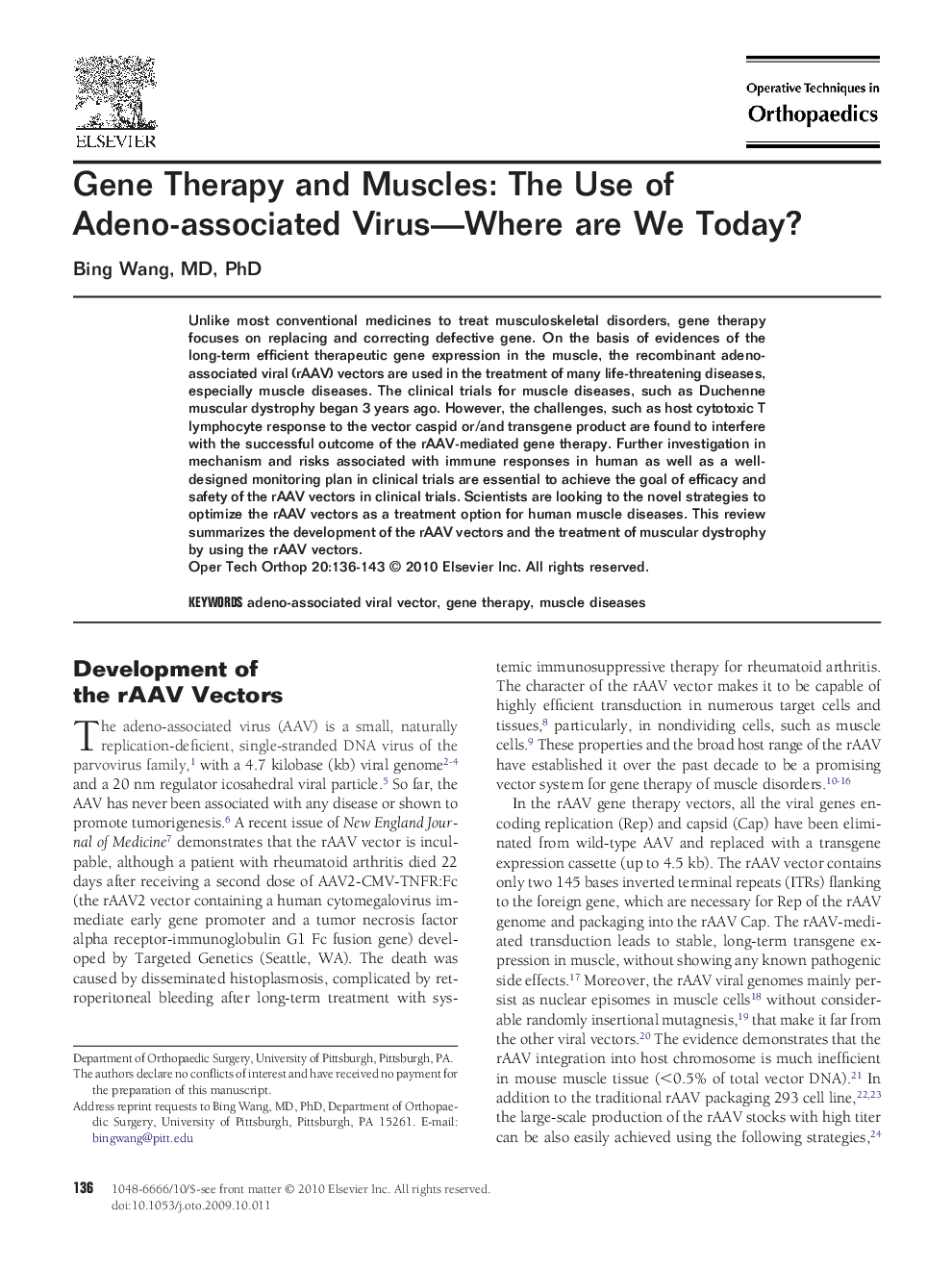| Article ID | Journal | Published Year | Pages | File Type |
|---|---|---|---|---|
| 4079116 | Operative Techniques in Orthopaedics | 2010 | 8 Pages |
Abstract
Unlike most conventional medicines to treat musculoskeletal disorders, gene therapy focuses on replacing and correcting defective gene. On the basis of evidences of the long-term efficient therapeutic gene expression in the muscle, the recombinant adeno-associated viral (rAAV) vectors are used in the treatment of many life-threatening diseases, especially muscle diseases. The clinical trials for muscle diseases, such as Duchenne muscular dystrophy began 3 years ago. However, the challenges, such as host cytotoxic T lymphocyte response to the vector caspid or/and transgene product are found to interfere with the successful outcome of the rAAV-mediated gene therapy. Further investigation in mechanism and risks associated with immune responses in human as well as a well-designed monitoring plan in clinical trials are essential to achieve the goal of efficacy and safety of the rAAV vectors in clinical trials. Scientists are looking to the novel strategies to optimize the rAAV vectors as a treatment option for human muscle diseases. This review summarizes the development of the rAAV vectors and the treatment of muscular dystrophy by using the rAAV vectors.
Related Topics
Health Sciences
Medicine and Dentistry
Orthopedics, Sports Medicine and Rehabilitation
Authors
Bing MD, PhD,
